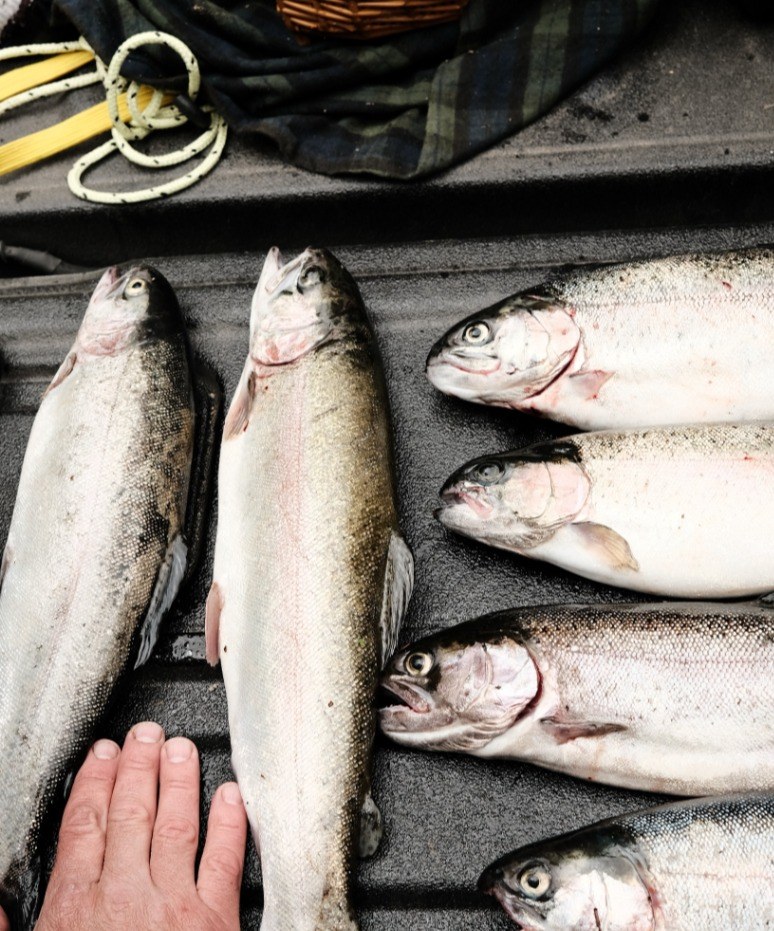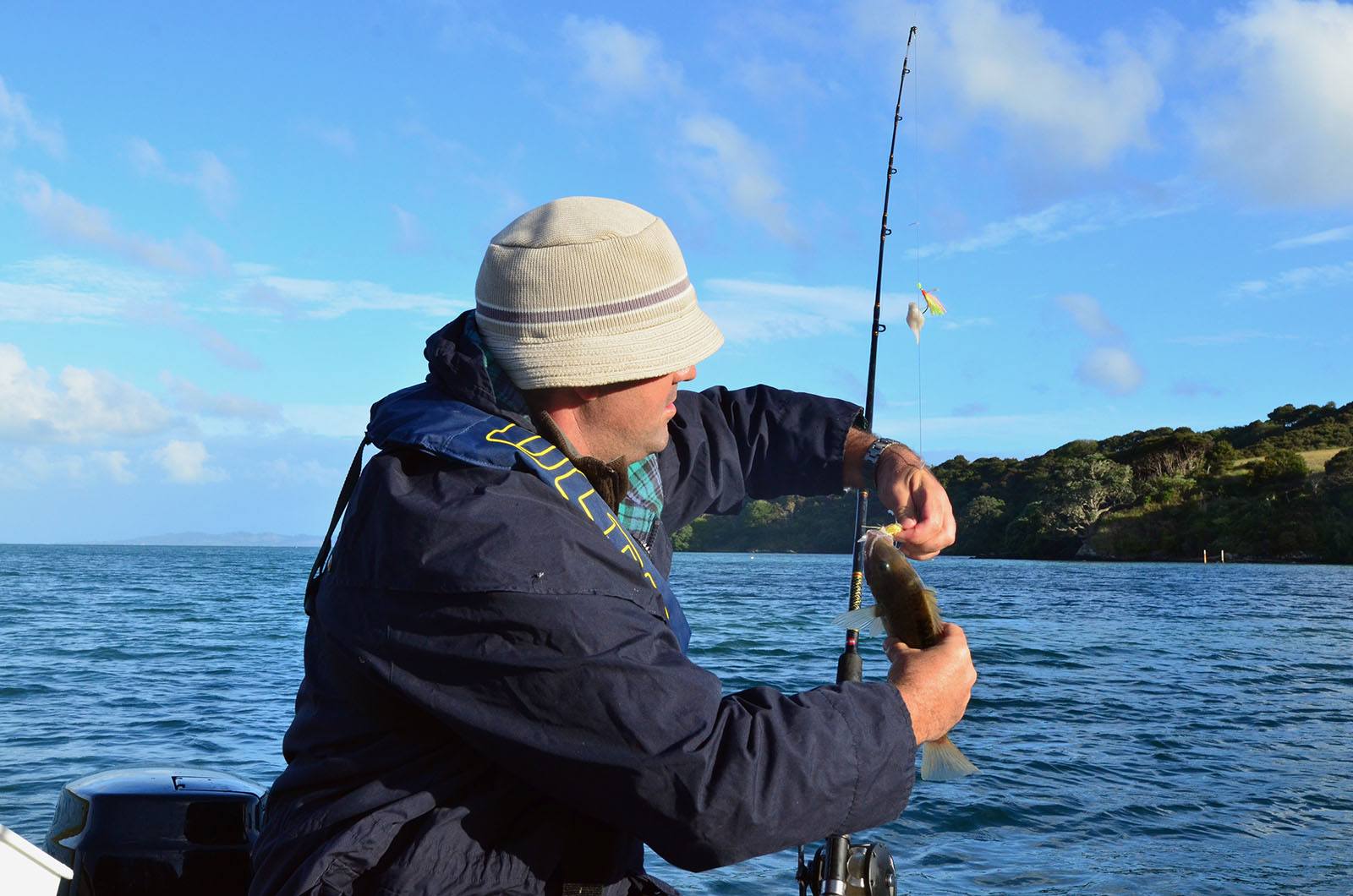Explore essential tips for beginners in sea fishing in the UK, covering everything from the best locations and ideal seasons to choosing the right tackle and bait.
Learn about basic fishing techniques, understanding tides, and ensuring safety on the water. Discover how UK regulations impact sea fishing for beginners and find out where to get licences, making your first fishing experience both enjoyable and compliant.
Go Fishing At High Tide
One of the first tips for sea fishing beginners is to go fishing at high tide. Fish are more likely to come close to the shore during high tide because the water covers more ground. This makes it easier for anglers to catch different types of fish such as bass, mackerel, and plaice. By checking local tide times beforehand, you can prepare better.
Understanding tidal patterns can also improve your chances of catching fish close to the beach or piers. Fishing at high tide is particularly beneficial since the rising water brings in nutrients and small creatures from the sea, creating a feeding ground for larger fish.
This increased activity makes it an ideal time for anglers to cast their lines. The higher water level at high tide allows fish to access areas that are usually too shallow, giving anglers opportunities to catch a variety of fish.
When planning your fishing trip, remember to fish during high tide. By doing so, you'll maximise your chances of a successful catch. It's also a good idea to arrive at your fishing spot a bit earlier than the predicted high tide to set up and get ready. So, next time you gear up for a day of sea angling, be sure to plan around the tides.
Use Tackle That’s Right
Choosing the correct tackle is crucial for successful sea fishing. As beginners, you need to understand the basics of fishing tackle. Different types of fishing - like bottom fishing, float fishing, and lure fishing - require different gear.
Bottom fishing is an excellent way to catch cod and flatfish. For this type of fishing, you'll need a fishing rod that can cast heavy weights, a robust reel, and a strong line.
Fishing tackle shops often recommend using specific gear for bottom fishing. The essential items include a sturdy rod, a reel with a good drag system, and a strong, abrasion-resistant line. This set-up allows you to reach the seabed where many fish reside, and keep your bait in place.
Float fishing is ideal for catching species that feed in mid-water, such as mackerel and bream. For this method, a spinning rod and light tackle are ideal. The bait should be cast in the water at a set depth, attracting fish that swim between the surface and the seabed. This technique requires a lightweight rod, a small reel, and a thin, sensitive line to detect bites. Float fishing offers a visual experience as you can watch and wait for fish to take the bait.
Lure fishing involves using artificial baits that mimic small fish to attract predators like bass. This type of fishing is good for beginners since it's straightforward and easy. You will need a light rod, a reel that can handle frequent casting and a variety of lures that imitate prey fish. The key is to choose lures that match the local conditions and the species you are targeting. Lure fishing is active and requires you to constantly cast and retrieve to entice the fish.
Regardless of the type of fishing you choose, it's essential to buy tackle that suits your needs. Using the right equipment ensures that you can present your bait or lure effectively and deal with various types of fish.

Don’t Stray Your Bait Too Far From The Fish
When learning to sea fish, knowing where to place your bait is crucial. It's important not to let your bait stray too far from where the fish are.
Fish typically feed close to structures like piers, rocks, and seaweed beds. These areas provide both shelter and food, making them ideal feeding spots. When using a fishing rod, aim to cast your bait near these structures.
Floating rigs are particularly effective for keeping your bait at the proper depth. Make sure to adjust your placement until you discover where the fish are feeding. Regularly check your bait to ensure it remains intact and attractive to the fish.
If your bait competes with natural food sources, it needs to be appealing to catch a fish’s attention. By strategically placing your bait, you increase your chances of catching different species.
Understanding the habitats of your target fish can also improve your fishing success. Fish are often found near submerged structures as these areas protect them from predators and provide food.
By observing and adjusting your bait, you'll find the spots where fish are likely to be. Successful sea fishing hinges on precise bait placement. Remember, the closer your bait is to the fish's feeding ground, the better your chances of success are.
Make Sure You Have The Right Equipment
Having the right equipment is essential for successful sea fishing in the UK. Having a versatile spinning rod and a good quality reel are effective for different types of sea fishing. It's important to invest in a strong fishing line and sharp hooks. Different species require different hook sizes, so make sure to buy a variety. Fresh bait like squid or worms is great for attracting fish. For those interested in lure fishing, having a selection of lures is necessary.
A tackle box is invaluable for organising your gear. Make sure to include spare hooks, weights, and lines. Wear a life jacket if you’re boat fishing, as safety is always important. Gloves and a knife are also useful for handling fish safely and efficiently. Before you start, check that your equipment is in good condition. Damaged gear can spoil your fishing experience and may lead to you losing a catch.
Many tackle shops offer beginners’ kits, providing all the essential items you’ll need. Having the right equipment ensures you're prepared for a successful day at sea. Having proper gear also ensures your safety on the water. Investing in the right equipment becomes an investment in a better fishing experience.

Understand How Water Clarity And Tide Affect Fish
Water clarity and tide are crucial elements to understand when sea fishing. These factors influence fish behaviour, and understanding them can enhance your fishing experience.
Water clarity determines how well fish can see your bait. In clear water, fish have a better visual range and can easily spot your lure or bait. This makes clear water ideal for lure fishing, as fish can see the bait from a distance and are more likely to bite. However, this clarity also means fish can be more cautious and harder to catch.
In contrast, murky water reduces fish's sight, making them rely on scent and vibrations. In these conditions, using strong-smelling baits can be more effective. The scent helps fish locate the bait even when they can't see it clearly. Vibrating lures can also attract fish in these conditions, as they mimic the movements of their prey.
Tide plays a significant role in fish activity. Fish are generally more active and feed more during changing tides. High and low tides bring fresh food, enticing fish to co
Fishing during the rising or falling tide is generally more productive than fishing at slack tide (when the tide is between high and low).
Different fish react differently to water clarity and tide. Bass and mackerel are more active in clear water, making them easier to catch with visual lures. However, flatfish like plaice prefer murkier conditions. Understanding these preferences takes time but significantly improves your sea fishing results.
It's also crucial to use the right tackle and equipment for the conditions you're fishing in. In clear water, it's best to use lighter lines and natural-looking baits to avoid spooking the fish. In murky water, stronger, scented baits and robust equipment are more suitable. Mastering the basics of water clarity and tide is key to a successful experience.

Looking For Sea Fishing in Cornwall?
Whether experienced or new to sea fishing in the UK, we can help you enjoy the trill of local sea fishing.

